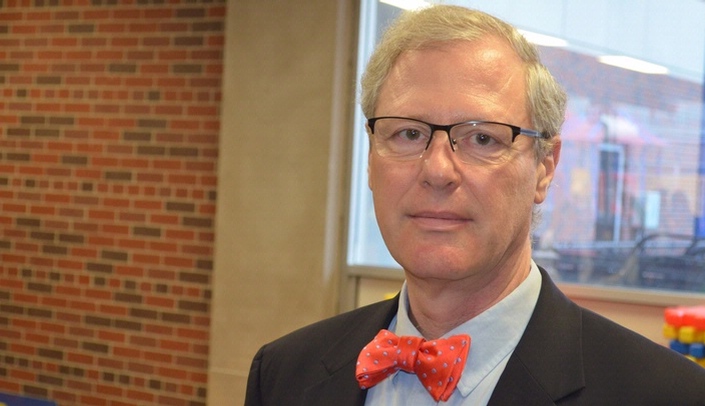Summer is generally a busy time for the Munroe-Meyer Institute’s outreach to Native American communities, and 2019 is no exception.
MMI and UNMC began working with American Indian communities in 2005, following the funding of our first National Institutes of Health Science Education Partnership Award (SEPA). One of the hallmarks of this effort is our middle school SEPA Health and Science Fun Camp. The 14th consecutive camp was held at UNMC earlier this month.
A new effort, our first STEAM (Science, Technology, Engineering, Arts, and Math) camp will be held here at UNMC the week of June 24. This is a collaboration between YES! (Youth Enjoy Science), a National Cancer Institute-funded program, the Fred & Pamela Buffett Cancer Center and the UNMC College of Public Health. Middle school students from the Native Indian Centered Education (NICE) from the Omaha Public Schools will take part in health and wellness, cultural, and hands-on science activities. Students will also learn about pathways to health careers and the hope we have of them returning to UNMC as future students.
These programs are not exclusively for young students. An important way to reach large numbers of students is to provide professional development for teachers. We have two different teacher workshops scheduled in June, both at UNMC. Themes for our teacher workshops come from needs assessments from our partner tribal schools.
Our SEPA teacher program will focus on the “science of energy.” Given that most of the schools are in rural areas, link to energy in agriculture and wind turbines will be explored. YES! is a newer program and, given the grant’s focus on cancer, the theme is related to cancer, cancer biology, and genetics and ethics. Primarily high school science teachers will be immersed learning about protein folding using models, chromosomal aberrations that cause cancer, stem cells, CRISPR technology, and visits to and with several cancer researchers and their laboratories.
Additionally, we are very pleased to partner with the Personal Genetics Education Project (PgEd) at Harvard Medical School. Some of their educators will be delivering programs on genetics and ethics during the teacher workshop. They will be back in the summer of 2020 for an entire teacher professional development program at UNMC.
We also take our programs on the road. We will be doing two different summer school programs on the Yankton Indian reservation in South Dakota. In mid-June, we will spend a week doing hands-on science activities with middle and high school students at the Marty Indian School. Activities will include protein folding, DNA finger printing, skin cancer awareness, and diabetes awareness. In early July, we return to the Yankton reservation and our fifth year of summer school at the Wagner Community School. There, we will work with first- through seventh-grade teachers providing age- and grade-appropriate science enrichment.
MMI can be proud of these strong partnerships, based on trust and open communication with tribal communities. The “standing room only” at our camps and requests to return to their schools is a testament to this engagement.
